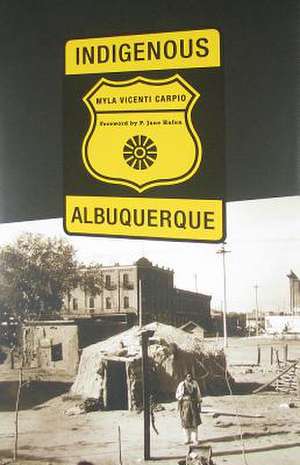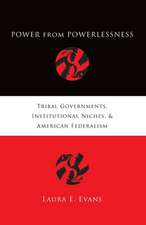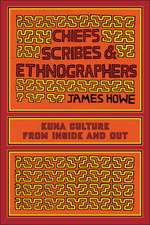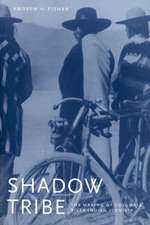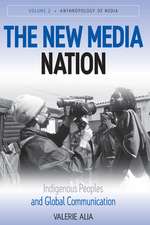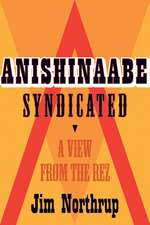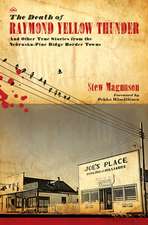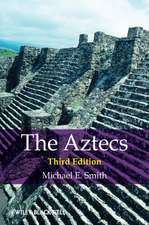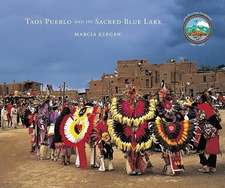Indigenous Albuquerque: Plains Histories
Autor Myla Vicenti Carpio, P. Jane Hafenen Limba Engleză Hardback – 9 mar 2011 – vârsta ani
Some 30,000 American Indians call Albuquerque, New Mexico, home, and twelve Indigenous nations, mostly Pueblo, live within a fifty-mile radius of it. Yet no study until now has focused on the complexities of urban American Indian experience in the state’s largest city.Indigenous Albuquerque examines the dilemmas confronting urban Indians as a result of a colonized past—and present—and the relationship between the City of Albuquerque and its Native residents. Treating not only issues of identity but also education, welfare, health care, community organizations, and community efforts to counter colonization, Myla Vicenti Carpio explores every aspect of Indigenous life in the city.“Urban” as a lived experience, she suggests, does not occur in isolation from either Indigenous communities’ survival or the legacies of Euroamerican colonization. This experience is integrally connected not only through cultural, religious, political, and economic spheres, but also through the legacy of federal reservation police, and thus cannot be understood as distinct from reservation life. By specifically considering the intersection of city and citizen, Vicenti Carpio expresses the dilemmas confronting urban Indians as a result of their colonized past.While Indigenous Albuquerque reflects the discipline of American Indian Studies, it is also relevant to American Indian history, ethnic studies, public policy, and urban history.
Din seria Plains Histories
-
 Preț: 141.04 lei
Preț: 141.04 lei -
 Preț: 261.98 lei
Preț: 261.98 lei -
 Preț: 122.07 lei
Preț: 122.07 lei -
 Preț: 172.17 lei
Preț: 172.17 lei -
 Preț: 235.56 lei
Preț: 235.56 lei -
 Preț: 145.99 lei
Preț: 145.99 lei -
 Preț: 256.02 lei
Preț: 256.02 lei -
 Preț: 216.41 lei
Preț: 216.41 lei -
 Preț: 200.16 lei
Preț: 200.16 lei -
 Preț: 134.86 lei
Preț: 134.86 lei -
 Preț: 262.16 lei
Preț: 262.16 lei -
 Preț: 196.63 lei
Preț: 196.63 lei -
 Preț: 224.34 lei
Preț: 224.34 lei -
 Preț: 224.14 lei
Preț: 224.14 lei -
 Preț: 223.03 lei
Preț: 223.03 lei -
 Preț: 265.91 lei
Preț: 265.91 lei -
 Preț: 138.99 lei
Preț: 138.99 lei -
 Preț: 285.31 lei
Preț: 285.31 lei - 20%
 Preț: 187.67 lei
Preț: 187.67 lei
Preț: 225.21 lei
Nou
Puncte Express: 338
Preț estimativ în valută:
43.10€ • 44.83$ • 35.58£
43.10€ • 44.83$ • 35.58£
Carte disponibilă
Livrare economică 25 martie-08 aprilie
Preluare comenzi: 021 569.72.76
Specificații
ISBN-13: 9780896726789
ISBN-10: 0896726789
Pagini: 208
Ilustrații: 23
Dimensiuni: 152 x 229 x 20 mm
Greutate: 0.48 kg
Ediția:1
Editura: Texas Tech University Press
Colecția Texas Tech University Press
Seria Plains Histories
ISBN-10: 0896726789
Pagini: 208
Ilustrații: 23
Dimensiuni: 152 x 229 x 20 mm
Greutate: 0.48 kg
Ediția:1
Editura: Texas Tech University Press
Colecția Texas Tech University Press
Seria Plains Histories
Notă biografică
Myla Vicenti Carpio, a citizen of the Jicarilla Apache Nation and also Laguna and Isleta Pueblo, is an assistant professor in the American Indian Studies program at Arizona State University.P. Jane Hafen (Taos Pueblo), professor English at the University of Nevada, Las Vegas, is the author or editor of numerous books and articles on American Indian literatures.
Descriere
Some 30,000 American Indians call Albuquerque, New Mexico, home, and twelve Indigenous nations, mostly Pueblo, live within a fifty-mile radius of it. Yet no study until now has focused on the complexities of urban American Indian experience in the state’s largest city.Indigenous Albuquerque examines the dilemmas confronting urban Indians as a result of a colonized past—and present—and the relationship between the City of Albuquerque and its Native residents. Treating not only issues of identity but also education, welfare, health care, community organizations, and community efforts to counter colonization, Myla Vicenti Carpio explores every aspect of Indigenous life in the city.“Urban” as a lived experience, she suggests, does not occur in isolation from either Indigenous communities’ survival or the legacies of Euroamerican colonization. This experience is integrally connected not only through cultural, religious, political, and economic spheres, but also through the legacy of federal reservation police, and thus cannot be understood as distinct from reservation life. By specifically considering the intersection of city and citizen, Carpio expresses the dilemmas confronting urban Indians as a result of their colonized past.While Indigenous Albuquerque reflects the discipline of American Indian Studies, it is also relevant to American Indian history, ethnic studies, public policy, and urban history.
